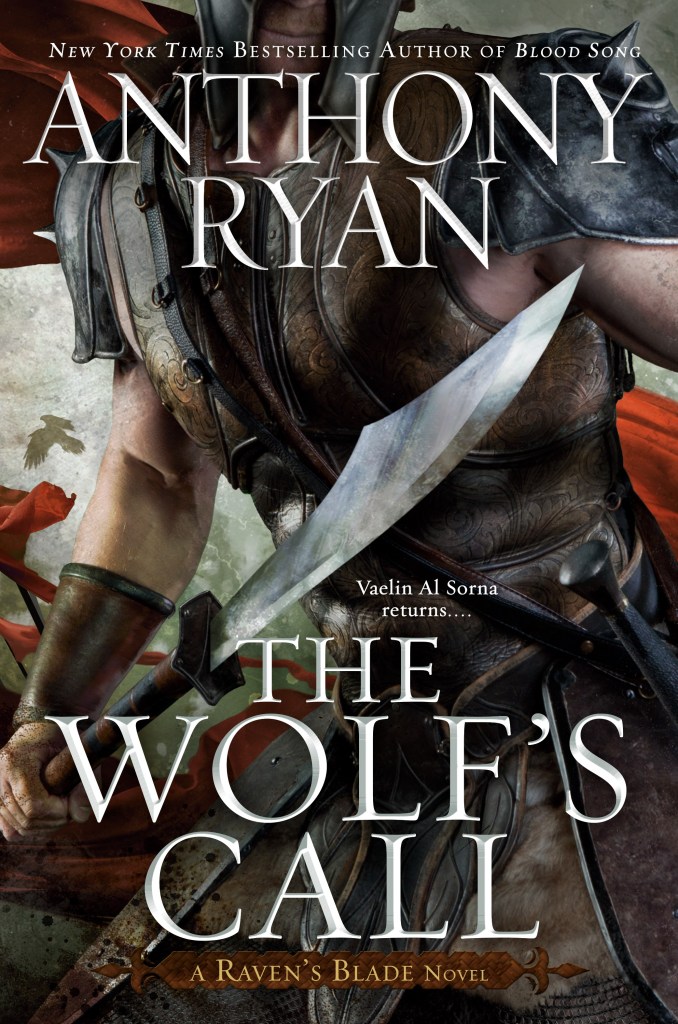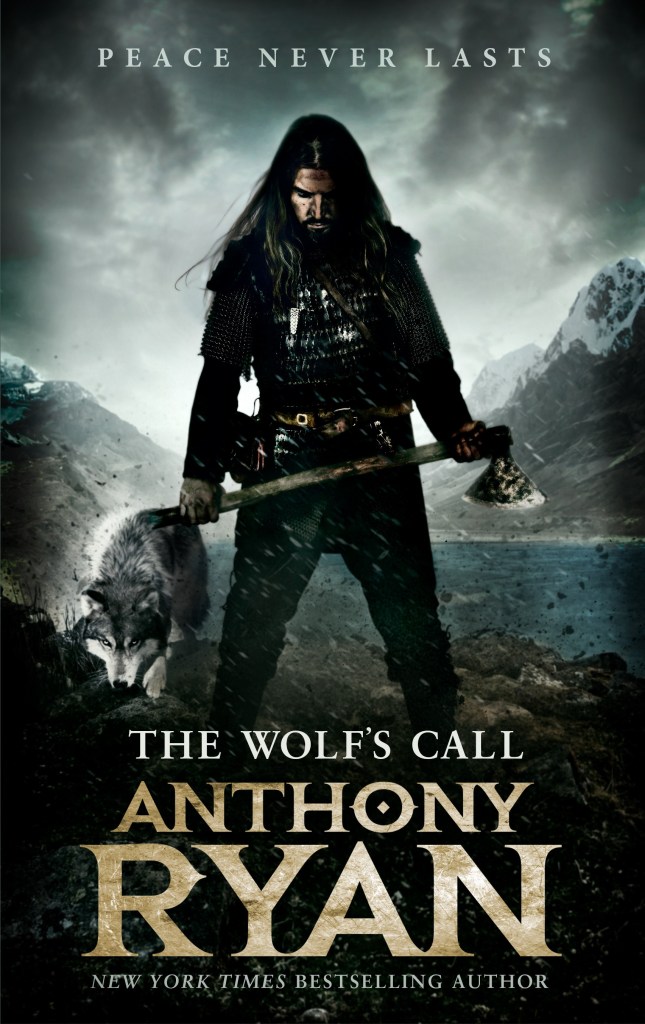Vaelin Al Sorna has returned, both literally and spiritually. While Blood Song, the book that introduced us to Vaelin, is a must-read for any fantasy reader, its follow-ups left much to be desired. Disappointing is the best way to describe them, as they are in themselves not bad books, but they are a decline from what made Blood Song so fantastic. Anthony Ryan’s voice in Blood Song is a perfect balance of Robin Hobb and Joe Abercrombie, while the sequels tend to lean too far towards Abercrombie. However, The Wolf’s Call, the first book in a duology series Raven’s Blade, brings Vaelin Al Sorna back to the forefront of the story and returns Ryan’s voice to its original strength.

The Wolf’s Call takes place ten years after Blood Song and five years after the end of Queen of Fire. Vaelin is continuing to live out his duties as Tower Lord of the Northern Reaches and training his young niece Ellese when he learns of a growing army the Stalhast, otherwise known as the Steel Horde, and their leader who calls himself a living god. Vaelin has seen enough war in his life already and has no intention to help the realm of the Merchant Kings until he learns someone from his past is in danger from this looming threat. Sherin, a healer, a former member of Fifth Order of the Faith, and Vaelin’s past love was last seen at the end of Blood Song sailing for the Far West without Vaelin. Now, that Far West is not so far, and Vaelin intends to sail there himself and save her, no matter how she may feel about Vaelin now that it’s been ten years. The Wolf’s Call can be read without reading any of the Raven’s Shadow books as each relationship Vaelin has and who is are well established without harking back to the past too much. However, it would be optimal to read Blood Song before reading The Wolf’s Call to fully learn how Vaelin became the person he is and why he is so motivated.
For The Wolf’s Call, Ryan returns to Vaelin being the sole point-of-view protagonist, which is a welcome return to form. While Reva as a point-of-view will be missed, the rest really never quite worked well. The plot starts off slow, as Vaelin is going about his duties as Tower Lord, but once the plot reaches the topmost point of incline, the ride down becomes more and more intense. It’s nice to see characters returning such as Nortah, Vaelin’s former rival in the Sixth Order of the Faith now close friend, without harking on the past too much. Blood Song was Vaelin’s coming-of-age tale, and then as he returned as an adult in Tower Lord and Queen of Fire, he seemed to get lost in the shuffle as far as growth went. Therefore, it’s such a relief to read Vaelin in the book be himself and have the space to learn who that person is. He’s a skilled warrior and a pragmatist. He doesn’t like war, but he knows what he excels at. He’s intelligent and confident, but he knows his limitations. It can be so frustrating to read smart characters have sudden spikes of stupidity for no reason. Vaelin isn’t like that, and now with years of experience under his belt, we as readers get to read him fully realized. It’ll be interesting to see how readers who start with this book with Vaelin as the legendary figure he is versus those who read Blood Song and know how he got there.

With a protagonist like Vaelin, you need an equally capable villain. The Ally, the villain from the previous series, tried to beat Vaelin by overpowering him alone. With Khelbrand, the leader of the Stalhast, you have a villain who is equal to Vaelin as a warrior in both stratagy and skill. Every time Khelbrand and Vaelin interacted the tension could be felt seething out of the book like a miasma of hate. While Vaelin has long past the point of putting on a mask for anyone, Khelbrand wears many masks to both his allies and his enemies in his vain attempt to prove he is a living god. It’s when he lets the mask slip for a moment, usually because of a remark made by Vaelin, that you see his rage underneath.
To say the Unified Realms was an integral part of the last series would be an understatement, so there was some trepidation to take Vaelin out of his homeland into the realm of the Merchant Kings. Fortunately, like in real life, getting out there and seeing the world in this book is both good for Vaelin and the reader. It is a vastly different place with a much different culture than anyone reading Anthony Ryan’s books are used to which we mostly learn about through their soldiery.
One of the only major criticisms that can be thrown at The Wolf’s Call is not enough scene time between Sherin and Vaelin, which is a major plot point of the book but perhaps that will be paid off in follow-up to this first book in the duology. The other is a sudden disappearance of the newly introduced cast of characters in the middle section of the book. Ellese is quite different from her adopted mother, Reva, and her Uncle Vaelin. A breath of fresh air, in fact, who should hopefully be seen more in the next book. Also included is the commander of the Red Scouts, Sho Tsai and his son, Tsai Lin, apprentice officer in the Red Scouts, who stood out as great new characters that were not featured in the middle section of the book. Vaelin is much better with a team of characters around him, such as his brothers from the Sixth Order of the Faith in Blood Song and his traveling companions in this one. When they return in the third act, the book is much improved though there isn’t a steep decline in quality.
Have you ever read a book and wished for something to happen as you read? Then when you finally get what it is you wished the author gives it to you in such a horrible way that you regret ever wishing for it? That’ll happen to you with the ending of this book, which was incredibly tense. Though it is foreshadowed at the beginning of the book, the ending will leave you exhaling “Yes!” in excitement but then mutter under your breath “Not like this. Not like this.” The next book can’t come soon enough.
